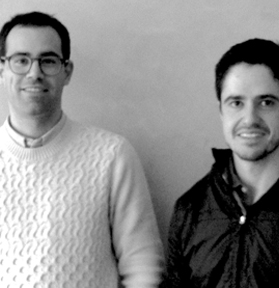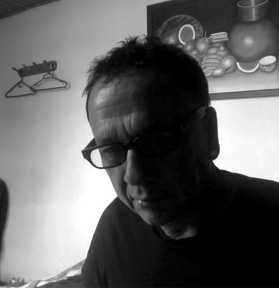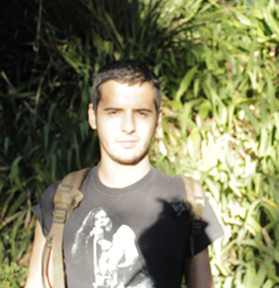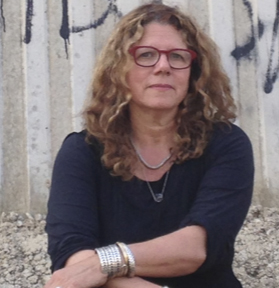SINOPSIS
A sus 95 años de edad, Doña Rosa trabaja todos los días, se ejercita, se ocupa de la casa y cree fervientemente en el destino. Nacida en la clase alta libanesa de San Pablo, Brasil, se casa con Rachid, un hombre modesto de la campiña que estudia medicina. En 1947, una misteriosa enfermedad ocular la amenaza con cegarla. El destino trae a la joven pareja a Nueva York, donde Rachid estudia oftalmología para salvarla. Ya de vuelta en San Pablo, cuando al familia finalmente comienza a llevar una vida más tranquila, el destino les juega otra pasada y se enteran de que Rachid sufre de una leucemia incurable. Cuando está por morir, le dice a su esposa: “Si quieres superar mi muerte, comienza a trabajar. Si muero hoy, comienza mañana.” Hasta el día de hoy, 45 años más tarde, Doña Rosa cumple devotamente con el pedido de su marido, el amor de su vida
At the age of 95, Doña Rosa works every day, works out, takes care of the house and strongly believes in fate. Born within the Lebanese upper class of São Paulo, Brazil, she marries Rachid, a modest young man from the countryside who is studying to be a doctor. In 1947 a mysterious eye condition threatens her with blindness. Fate brings the young couple to New York where Rachid studies ophthalmology in order to save his wife.
Back to São Paulo, when the couple finally starts a quiet life, fate strikes again and they realize Rachid has an incurable form of leukaemia. When he is about to die, he turns to his wife and says: "If you want to overcome my death, start working. If I die today, start working tomorrow." To this day, 45 years later, Doña Rosa devoutly follows the request of her husband – the love of her life.
BIOGRAFÍAS Lucas Mandaru es un director de cine brasiler ode 28 años. Estudió fotografía, guión y cine en San Pablo y Berlín. Con un Master en Administración Audiovisual del Istituto Europedo di Design, trabajó por cinco años como productor ejecutivo asistente. Ha trabajado también como Project manager para el famoso director de telenovelas brasileras Alexandre Avancini. En el año 2012, fue jefe de producción de Sonhar TV, una iniciativa del Ministerio de Cultura de Brasil y Cinemateca Brasileira.
Lucas Mandaru es un director de cine brasiler ode 28 años. Estudió fotografía, guión y cine en San Pablo y Berlín. Con un Master en Administración Audiovisual del Istituto Europedo di Design, trabajó por cinco años como productor ejecutivo asistente. Ha trabajado también como Project manager para el famoso director de telenovelas brasileras Alexandre Avancini. En el año 2012, fue jefe de producción de Sonhar TV, una iniciativa del Ministerio de Cultura de Brasil y Cinemateca Brasileira.
Matihias Mangin es un director franco-brasilero de 30 años. Estudió administración en la escuela de negocios EDHEC en Lille, Francia; dirección de cine en la New York Academy y guión en Fémis en París. Además de dirigir varios cortos y videos musicales, Mathias dirigió y produjo el documental Next Year in Bombay, que fue seleccionado en numerosos festivales internacionales incluyendo el Palm Springs International Festival y el Mumbai Film Festival.
Lucas Mandacaru is a 28 year old Brazilian filmmaker. He studied photography, screenwriting and cinema in São Paulo, Paris and Berlin. With a Master graduation at the Audiovisual Business Administration course at Istituto Europeo di Design (IED), he worked for five years as an executive production assistant. He also worked as project manager for the famous Brazilian soap operas director Alexandre Avancini. In 2012 he was head of production of Sonhar TV, an initiative of Brazilian Ministry of Culture and Cinemateca Brasileira.
Mathias Mangin is a 30 year old French-Brazilian filmmaker. He studied management at EDHEC Business School (Lille, France), film-making at New York Film Academy (NY, USA) and screenwriting at Fémis (Paris, France). In addition to various short films and music videos, Mathias directed and produced the documentary film Next Year in Bombay, which was selected in many international festivals such as Palm Springs International Film Festival and Mumbai Film Festival.
SINOPSIS
Una aspiradora, gran lanzamiento mundial de una multinacional, es usada en una sesión de tortura en Abu Grahib y la foto del torturado cae en internet.
SINOPSIS
Un pueblo es también un libro. Es la suma de las historias de su gente; de su nostalgia; del sentir profunda y orgullosamente su identidad trascendiendo el tiempo y las fronteras. Palestina existe, más allá del sombrío recuento noticioso, en el recuerdo de quienes partieron para sembrar en otras tierras su semilla ─que crece y se multiplica plena de poesía y amor por la vida. En un lugar tan distante como Venezuela, este pueblo fragmentado por la barbarie renace y se reúne en el orgullo de su ser. Este cortometraje recoge, en la poesía de Miriam, el testimonio de Yasser en lo que habrán de decirnos sus descendientes ─el relato de una familia.
A nation is also a book. It is the sum of its people’s stories; of their nostalgia, of their proud and deep feeling of their identity transcending time and borders. Palestine exists ─beyond the sombre news─ in the memory of those who departed to plant seeds in other lands, a seed which grows and multiplies full of poetry and love of life. In a place as distant as Venezuela, this peoples fragmented by Barbary is reborn and reunited in the pride of its existence. This short film gathers, through Miriam’s poetry, Yasser’s testimony of what his descendants and a family’s tale will tell us.
BIOGRAFÍA Gabriela G. Fuentes cursó estudios de cinematografía en la Universidad Central de Venezuela y en el Instituto de Formación Cinematográfico Cotrain. Ha trabajado en diversos films como camarógrafa, productora y asistente de dirección entre los que destacan documentales como; Puente Llaguno, Claves de una masacre de Ángel Palacios, Del voto a la elección de Liliana Blaser y El asesinato de Pedro Doria con el colectivo ANPA. Es miembro de los equipos fundadores de Catia TVE, ANMCLA (Asociación de Medios Comunitarios Libres y Alternativos) y Telesur. Directora de la serie documental Territorio Visual y Biculturales y la fiesta de la integración. Es co-directora de los documentales Guerreros del Arcoiris y Escrito en la tierra, también el documental Las muchachas y el corto documental Palestina y otros relatos. Desde el 2007, con un grupo de amig@s conspira, sobrevive y sueña con hacer peliculitas desde LA TAGUARA FÍLMICA.
Gabriela G. Fuentes cursó estudios de cinematografía en la Universidad Central de Venezuela y en el Instituto de Formación Cinematográfico Cotrain. Ha trabajado en diversos films como camarógrafa, productora y asistente de dirección entre los que destacan documentales como; Puente Llaguno, Claves de una masacre de Ángel Palacios, Del voto a la elección de Liliana Blaser y El asesinato de Pedro Doria con el colectivo ANPA. Es miembro de los equipos fundadores de Catia TVE, ANMCLA (Asociación de Medios Comunitarios Libres y Alternativos) y Telesur. Directora de la serie documental Territorio Visual y Biculturales y la fiesta de la integración. Es co-directora de los documentales Guerreros del Arcoiris y Escrito en la tierra, también el documental Las muchachas y el corto documental Palestina y otros relatos. Desde el 2007, con un grupo de amig@s conspira, sobrevive y sueña con hacer peliculitas desde LA TAGUARA FÍLMICA.
Gabriela G. Fuentes studied film at the Universidad Central de Venezuela and at the Instituto de Formación Cinematográfico Cotrain. She has worked in various films as a camerawoman, producer and assistant director ─some of them are Puente Llaguno, Claves de una masacre de Ángel Palacios, Del voto a la elección de Liliana Blaser and El asesinato de Pedro Doria con el colectivo ANPA. She is a founding member of the teams that put together Catia TVE, the Association of Free and Alternative Community Media (ANMCLA by its Spanish acronym) and Telesur. She directed the documentary series Territorio Visual and Biculturales y la fiesta de la integración. She has co-directed the documentary films Guerreros del Arcoiris y Escrito en la tierra and Las muchachas and the short film Palestina y otros relatos (Palestine and other Tales). Since 2007 she, amongst a group of friends, plots, survives and dreams about making films through LA TAGUARA FÍLMICA.
SINOPSIS
Realizado durante los 50 días que duro el bombardeo de Israel contra el pueblo de Gaza.
En la Soledad de Mi Opulencia was made during the 50 days of Israel’s bombardments of the Gaza population.
BIOGRAFÍA La práctica de Jorge Lozano se centra en el trabajo en cine, video, instalaciones e intervenciones. Su cine-ficción se ha mostrado en el Toronto Film Festival y el Sundance Film Festival entre otros festivales. Su trabajo experimental se ha exhibido internacionalmente en muchos festivales y espacios-galerías. Ha combinado su trabajo artístico con el activismo cultural; con la organización de alucine, el Toronto Latin Media Festival; y con la facilitación de talleres de auto-representación trabajando con jóvenes en riesgo en barrios populares de Colombia y guetos en Toronto, Canada.
La práctica de Jorge Lozano se centra en el trabajo en cine, video, instalaciones e intervenciones. Su cine-ficción se ha mostrado en el Toronto Film Festival y el Sundance Film Festival entre otros festivales. Su trabajo experimental se ha exhibido internacionalmente en muchos festivales y espacios-galerías. Ha combinado su trabajo artístico con el activismo cultural; con la organización de alucine, el Toronto Latin Media Festival; y con la facilitación de talleres de auto-representación trabajando con jóvenes en riesgo en barrios populares de Colombia y guetos en Toronto, Canada.
Jorge Lozano’s activity is centred round cinema, video, installations and interventions. His fictional cinema has been screened at the Toronto International Film Festival and at Sundance among others. His experimental work has been internationally shown in many festivals and gallery-venues. He has combined his artistic endeavours with cultural activism; the organization of Alucine, the Toronto Latin Media festival; and with facilitating self-representation workshops for youngsters at risk living in popular neighbourhoods in Colombia and ghettos in Toronto, Canada.
SINOPSIS
Utilizando entrevistas reales como la realizada al activista Rami Jarah, que atraviesa todo el filme, y otras ficcionales; así como también escenas de archivo que muestran discursos de Bashar Al-Assad, la película es un pequeño estudio de la situación de Siria.
Through interviews with people like activist Rami Jarah ─which is infused throughout the whole film─ and other fictional ones, plus archive scenes of Bashar Al-Assad’s speeches; the film is a small study of the situation in Syria.
BIOGRAFÍA Diogo Foggiano creció en Paraguay y estudió Cine en la Escuela de Comunicación y Artes de laUniversidad de San Pablo. Ha dirigido los cortos Copan, Zeit to the Geist, La Ultima Frontera y Bashar y ha sido galardonado internacionalmente.
Diogo Foggiano creció en Paraguay y estudió Cine en la Escuela de Comunicación y Artes de laUniversidad de San Pablo. Ha dirigido los cortos Copan, Zeit to the Geist, La Ultima Frontera y Bashar y ha sido galardonado internacionalmente.
Ahora, Diogo está lanzando su primer largometraje, que tuvo su debut en el Festival de Rio de Octubre de este año 2014, The Revolution of The Year.
Diogo Faggiano grew up in Paraguay and studied Cinema at the School of Communication and Arts at the University of São Paulo. He has directed the short films Copan, Zeit to the Geist, La Ultima Frontera and Bashar, all for which he has been awarded. Now Diogo is launching his first feature film, which had its opening in Festival do Rio in October, 2014: The Revolution of the Year.
SINOPSIS
Copia Pirata: Palestina es una de las tres narrativas que miran a la piratería fuera de la mayoría global. Una de las historias se desarrolla en el East End dlondinense durante la clausura del cine Malayalam y otra, en el mercado de Tepito en la ciudad de México. En Copia Pirata: Palestina, conocemos a Ahmad y a Yousef, del cine itinerante en Ramallah, y viajamos con ellos mientras van proyectando películas piratas alrededor de Medio Oriente. Nos encontramos también con otros cineastas palestinos, incluyendo a Rashid Masharawi, quien nos habla sobre el impacto que tuvo la ocupación para el cine palestino en el contexto de la piratería de cine.
Pirate Copy: Palestine is one of three narratives which look at film piracy outside the majority world. One of the stories takes place in the East End of London at the closing of a Malayalam cinema and another one, in Tepito market in Mexico City. Pirate Copy: Palestine, we meet Ahmad and Yousef, from the mobile cinema in Ramallah, and travel with them as they screen non pirated films across the West Bank. We meet with other Palestinian film makers, including Rashid Masharawi, who speaks about the impact of occupation on Palestinian cinema in the context of film piracy.
BIOGRAFÍA Nacida en Inglaterra, Trisha Ziff estudió Bellas Artes en la Universidad Goldsmith en Londres y realizó su maestría en Comunicación Audiovisual en la Universidad Coleraine, Irlanda. Allí funda Camerawork Derry, un taller de cine y fotografía. En 1995 se radica en México. Durante los últimos veinte años ha trabajado en el mundo de la fotografía como escritora, editora, curadora y realizando películas sobre fotografía. Entre otras iniciativas a lo largo de los años, co-produjo el largometraje Morirse Está en Hebreo, dirigida por Alejandro Springall en el año 2008. Está desarrollando junto con el productor Ozcar Ramírez González El Hombre Que Vio Demasiado.
Nacida en Inglaterra, Trisha Ziff estudió Bellas Artes en la Universidad Goldsmith en Londres y realizó su maestría en Comunicación Audiovisual en la Universidad Coleraine, Irlanda. Allí funda Camerawork Derry, un taller de cine y fotografía. En 1995 se radica en México. Durante los últimos veinte años ha trabajado en el mundo de la fotografía como escritora, editora, curadora y realizando películas sobre fotografía. Entre otras iniciativas a lo largo de los años, co-produjo el largometraje Morirse Está en Hebreo, dirigida por Alejandro Springall en el año 2008. Está desarrollando junto con el productor Ozcar Ramírez González El Hombre Que Vio Demasiado.
Trisha Ziff was born in England and majored in Fine Arts from Goldsmith University and got a master’s degree in audiovisual communication at Coleraine University in Ireland. There, she founds Camerawork Derry, a film and photography workshop. In 1995 she settles in Mexico. She has been involved with the world of photgraphy as a writer, curator and making films about it for 20 years. Amongst other initiatives in which she has been involved throughout this time, she co-produced the long feature Morirse Está en Hebreo, directed by Alejandro Springall in 2008. She is currently developing a project called El Hombre Que Vio Demasiado with producer Ozcar Ramírez González.